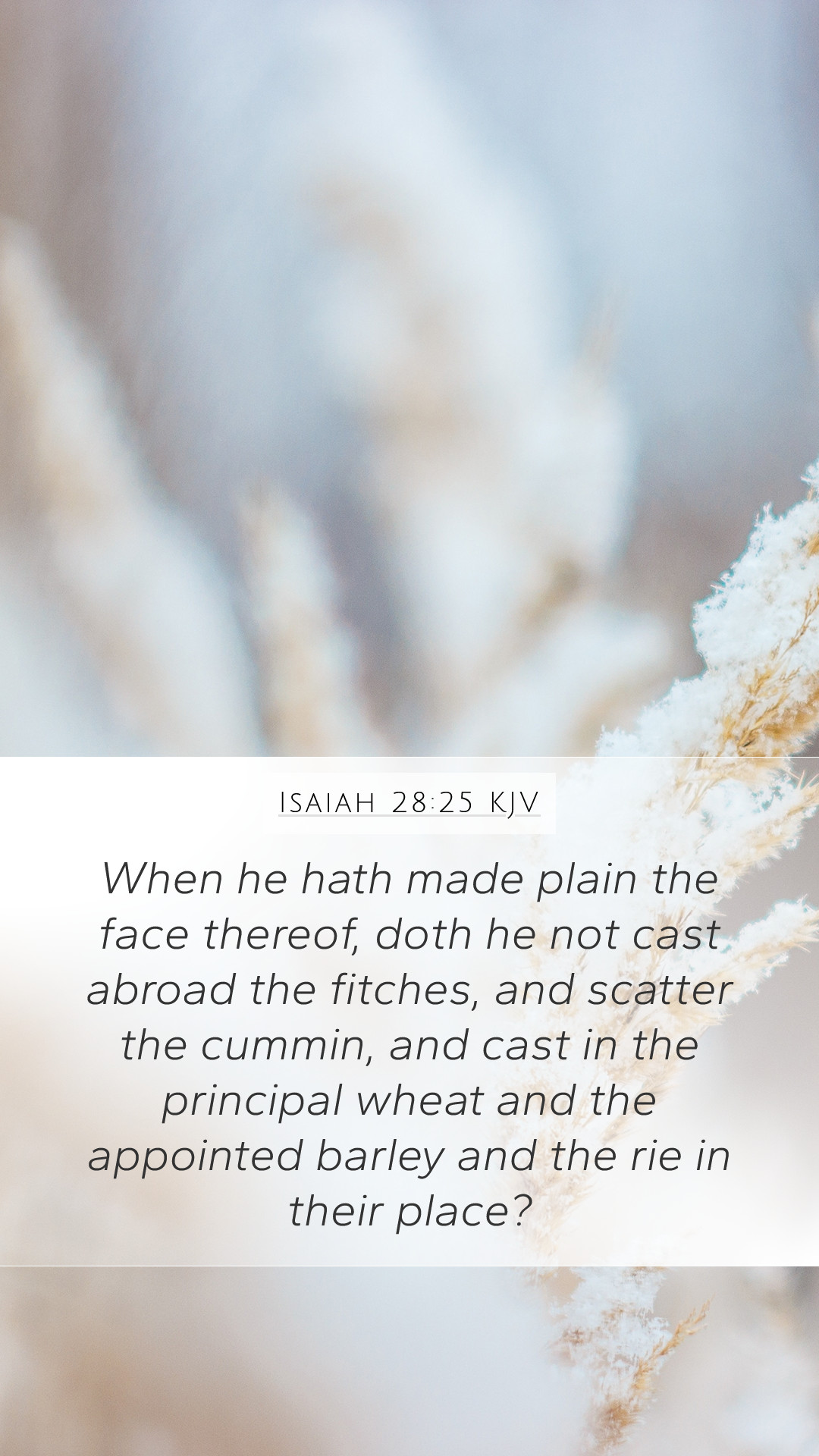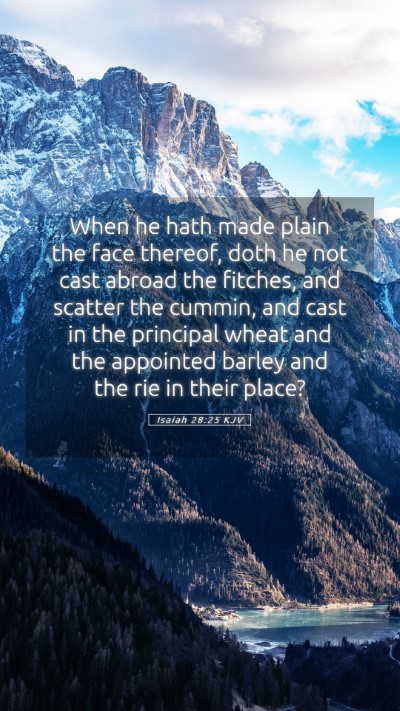Understanding Isaiah 28:25
Isaiah 28:25 states: "And when he hath made plain the face thereof, doth he not cast abroad the weeds, and scatter the cummin, and cast in the principal wheat and the appointed barley and the rye in their place?"
Overview of Isaiah 28:25
This verse reflects God’s careful cultivation and guidance of His people, illustrating how He plans and organizes life, much like a farmer prepares fields for various crops. It emphasizes God's sovereignty and intentionality in the natural order and His providential care for humanity.
Contextual Background
This verse is part of a larger passage where the Lord critiques the leaders of Israel for their shortsightedness and folly. It serves as a contrast to the divine wisdom incorporated into everyday life, as seen in agricultural practices.
Insights from Public Domain Commentaries
Matthew Henry’s Commentary
Matthew Henry suggests that God is likened to a wise farmer who knows the right time and method for sowing different grains. This imagery indicates the Lord’s meticulous nature in the divine agronomy of spiritual truths. It signifies that God has a plan for each individual, just as a farmer tailors his approach to the various types of crops.
Albert Barnes’ Commentary
Albert Barnes highlights that the act of sowing different kinds of seeds signifies the diversity of God’s work among His people. The division of labor in sowing reflects the varied roles and gifts within the body of Christ. The verse emphasizes that God gives each crop its appropriate season and that every season serves a purpose in His grand plan.
Adam Clarke’s Commentary
Adam Clarke discusses the significance of preparation in this verse. He notes that each type of seed represents a different aspect of God's planting—spiritual gifts, nurturing leaders, or prophets. Clarke also emphasizes the orderly process God employs, which reassures believers of His active involvement in their lives and their spiritual growth.
Applications of Isaiah 28:25
Understanding this verse can enrich personal Bible study and devotion. Here are some applications:
- Recognizing God’s Order: Just as a farmer has a plan, so does God have a plan for each believer’s life.
- Embracing Diversity: Acknowledge and celebrate the variety within the Body of Christ trusting that each role is significant.
- Season of Preparation: Understand that periods of waiting and preparation in life can lead to fruitful outcomes.
Bible Verse Commentary
The insights captured in this commentary not only provide a theological understanding but also encourage believers to be mindful of God's purposeful design in their lives. Through careful study, we can appreciate how this verse serves as a spiritual metaphor for cultivating faith and understanding God's workings in our daily experiences.
Cross References to Consider
- 1 Corinthians 3:6-9 - Discusses the growth of God's garden through various workers.
- Galatians 6:7-9 - Speaks to the principle of sowing and reaping.
- Matthew 13:31-33 - Jesus uses similar agricultural metaphors in His parables.
Conclusion
Isaiah 28:25 encapsulates profound truths about God's involvement in creation and the spiritual development of His people. The careful distinction in sowing seeds reflects His intention that each believer is vital for the overall harvest of faith. This verse invites deeper engagement with Scripture and can serve as a guide in Bible study groups or personal reflection.
Further Study Resources
For enhanced Bible study insights, consider utilizing study guides and tools available for online Bible study or group discussions focusing on scripture analysis and understanding difficult Bible passages.


